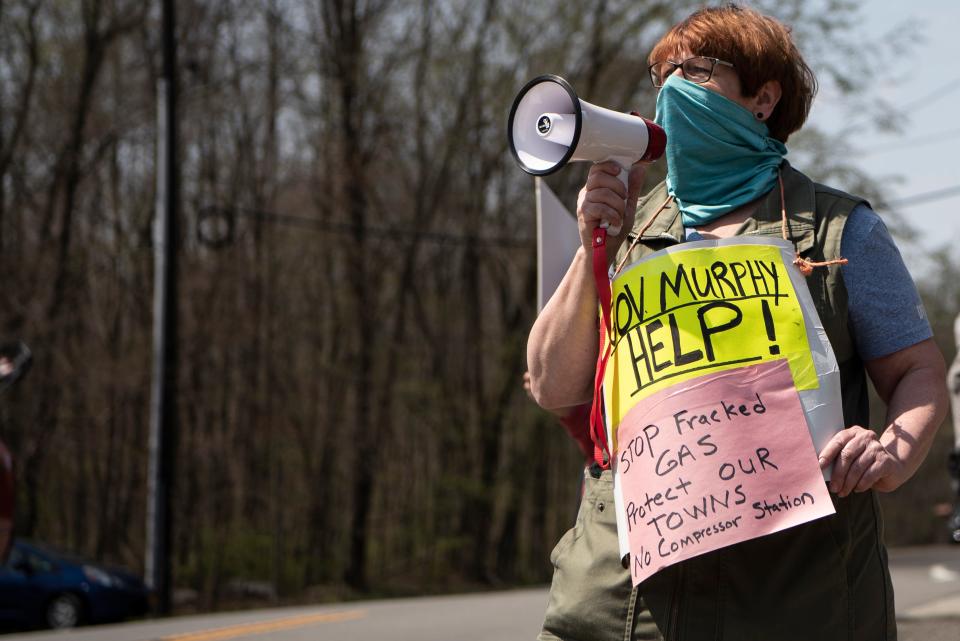When feds fail, Gov. Phil Murphy must stop fossil fuel expansion | Opinion
As Hurricane Ida battered New Jersey in September with two to three inches of rain per hour — leaving 91 people dead, including 31 here in our state — staffers at an agency called the Federal Energy Regulatory Commission were reviewing proposals for new fossil fuel projects, all of which would contribute to the warming that is driving the climate crisis and supercharging storms like Ida.
While FERC is basically unknown to the general public, the gas industry knows the commission to be an extremely friendly governmental partner. FERC has approved 99% of applications for permits for gas industry pipelines and compressor stations, denying just two of these permits out of 500 applications since 1999.
Those trends are evident here in New Jersey. FERC recently issued the Final Environmental Impact Statement for the inaptly named “East 300 Upgrade Project,” a proposal by Tennessee Gas Pipeline Company to greatly increase the volume of fracked gas through a decaying 70-year-old pipeline it operates from Pennsylvania across northern New Jersey to New York.
To do so, it must triple the size of a large compressor station in Wantage, and construct a new one in West Milford. The West Milford station will be near two major reservoirs in the Highlands, a protected area which supplies drinking water for 6.2 million New Jersey residents.
Earlier: Federal officials link climate change concerns to North Jersey gas pipeline compressors
Despite decades of scientific research providing evidence that burning fossil fuels is driving the climate crisis, FERC has been very slow to recognize these impacts when assessing new projects. In its recent analysis of the Tennessee Gas project, the agency wrote that it had not “identified a methodology to attribute discrete, quantifiable, physical effects on the environment resulting from the Project’s incremental contribution to GHGs [greenhouse gases].”
That bizarre conclusion is music to the ears of the fossil fuel industry, which at least acknowledges on paper that burning more fossil fuels creates more fossil fuel pollution. TGP representatives themselves project annual emissions from the East 300 project at more than 2.34 million tons of carbon dioxide equivalent per year. The Institute for Policy Integrity, a non-partisan organization at New York University School of Law, used a federal government model to calculate that the project would be responsible for damage of more than $131 million per year.
With the ongoing decline in the cost of solar and wind renewables, combined with proven and readily deployable technologies like electric heat systems, the economic feasibility of the East 300 Upgrade Project is in doubt, especially over the long term. Increasing New York’s reliance on gas is incompatible with the state’s Climate Leadership and Communities Protection Act, a law that is already being used to reject other dirty and destructive fossil fuel expansion projects.
None of the gas transported by the East 300 project will even be used in New Jersey, yet we will suffer the consequences if there is groundwater pollution from chromium, benzene, and hydrocarbons from the construction and ongoing operation of these stations. And the air in New Jersey will be also polluted by regularly scheduled and unplanned “blowdowns" where the gas and accumulated pollutants are released from the stations directly into the surrounding air — in this case right near residents, businesses, and popular fishing and outdoor recreational sites like the Monksville Reservoir.

Because FERC is not performing its statutory duties, it’s up to the New Jersey Department of Environmental Protection to step in. It must rescind the permit it issued to exempt the project from the Highlands Act, which was enacted specifically to protect this sensitive and irreplaceable watershed from industrial developments like major fossil fuel infrastructure.
Gov. Phil Murphy has the power to stop this ill-fated project. Just weeks ago, he signed an executive order to cut greenhouse gas emissions in half by the end of this decade, an important goal if we want to avoid the most disastrous consequences of climate change. But we can only get there if we stop allowing new sources of fossil fuel pollution to be built. New Jersey residents deserve clean water to drink, cleaner air to breathe, and a safe climate for future generations. As Hurricane Ida showed us, there is no time to waste.
Matt Smith is the New Jersey State Director at Food & Water Watch. Julia Somers is the New Jersey Highlands Coalition Executive Director.
This article originally appeared on NorthJersey.com: NJ must stop fracking pipeline expansion

